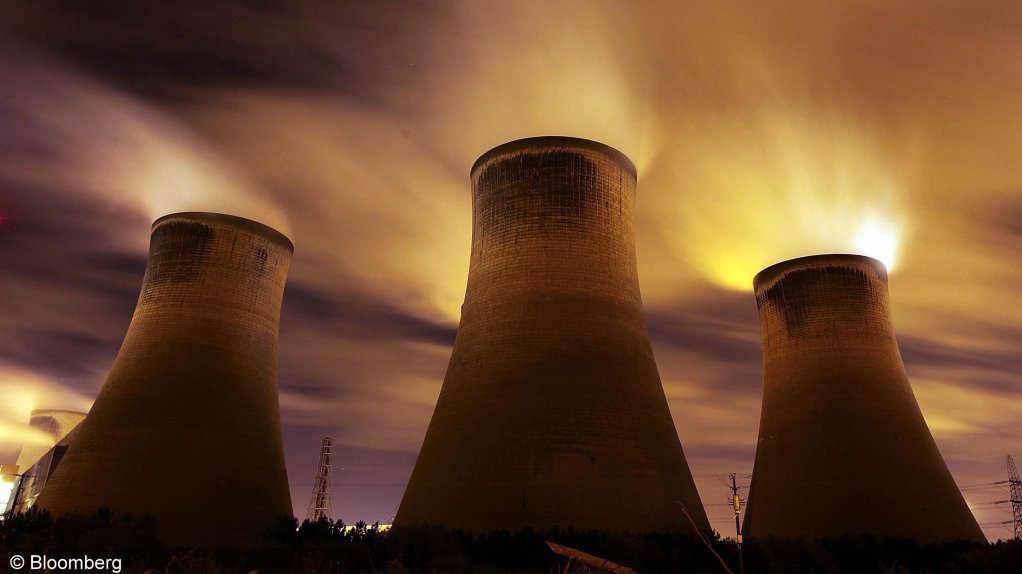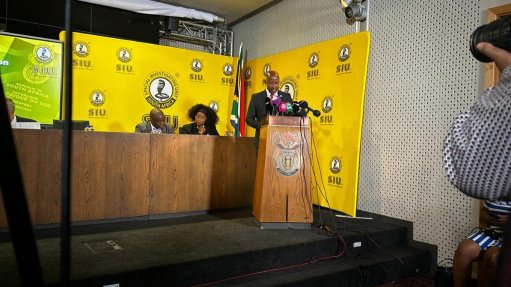Consultancy calls for creation of ‘Just Transition Worker Fund’ to address climate-linked inequality
Research and consulting firm PBS Development Consulting has recommended the establishment of a dedicated ‘Just Transition Worker Fund’ to ensure South Africa’s climate transition addresses inequality, employment precarity and uneven municipal capacity.
Speaking at the Just Transition Labour Centre’s (JTLC’s) inaugural Annual Policy Conference, in Sandton, on November 6, PBS researcher Mamokete Modiba said the fund should enable differentiated access across stakeholders and municipalities, particularly those in rural areas that are less resourced than metropolitan counterparts.
PBS was contracted by JTLC to deliver an evidence-based, focused report on South Africa and climate change. The study aimed to broaden the concept of transition beyond decarbonisation to include social and economic dimensions such as employment, spatial inequality, access to basic services, and participation in decision-making.
“We need to establish a dedicated Just Transition Worker Fund, which has got differentiated access across the different stakeholders, as well as municipalities, because we know that, for instance, rural municipalities would not really have access compared to the metros,” Modiba said.
However, the proposal for yet another new fund may face resistance from some quarters as South Africa already operates a range of State-managed support mechanisms, including the Unemployment Insurance Fund, the National Empowerment Fund and several sectoral development finance programmes.
Given the country’s fiscal constraints and high public debt levels, the feasibility of establishing yet another fund might be called into question, particularly amid growing public fatigue over the creation of new State entities and concerns about financial mismanagement.
She said the research identified six sectors heavily affected by climate change, including energy, mining, agriculture and the automotive industry.
Informal settlements were found to face higher climate risk than formal settlements, reflecting the unequal distribution of resources and infrastructure.
“A key point as well coming up from the brief was to ensure that, in the research, that we really drum the point that we need to go beyond decarbonisation to talk about a broader transition where we're tackling some of these issues around employment, precarity, spatial inequality, access to basic services, while we're at the same time promoting participation, inclusion and justice,” she said.
The report emphasised that justice should be central to all climate responses. Modiba said climate change acted as a “poverty multiplier” that worsened inequality and disproportionately affected vulnerable communities.
“We know that the climate crisis doesn't affect different areas the same way. So we need to find ways to ensure that, as we are transitioning, we're also finding solutions that would have a justice element to ensure that the risks and costs are adequately distributed,” she said.
Modiba added that existing inequalities would be exacerbated by job and income losses linked to climate-linked transitions in the economy.
“There's a lot of reduction in jobs and income and we actually need to find ways to ensure that [we address this], because we know that it really deepens the inequality that is already there,” she said.
Modiba noted that South Africa’s extensive policy and legal frameworks on climate issues were undermined by weak governance and limited implementation capacity.
“We also found that there's a persistence in terms of governance and policy gaps. So we do have a lot of climate policies and legal frameworks, but unfortunately [they are lacking] because of the capacity issues, resource issues and other issues as well,” she said.
To address these challenges, PBS proposed several measures, including transforming worker and community participation from mere consultation to meaningful involvement in decision-making.
“We know that communities and workers have got lived experiences, but when decisions are being made, those are not factored into the plans that get developed, and we find that those plans then are not in touch with what is actually happening in reality,” Modiba said.
The report also recommended building municipal capacity to address climate risks through targeted technical and financial support. Modiba noted that some municipal officials still did not view climate change as a real issue, underscoring the need for training and skills development.
“We know our municipalities are not well capacitated in terms of dealing with some of these climate change issues. You still find officials who still think that climate change is not a real thing,” she said.
PBS further called for expanded social protection to include the informal sector, which is typically excluded from formal transition plans.
“We need to also bring in some of the informal, the precarious workers that also need to be part of the transition,” Modiba said.
The report urged better policy coordination across sectors through stronger intergovernmental relations, noting that South Africa’s current approach remained siloed. Modiba said such mechanisms were essential to ensuring coordinated climate action.
“There is a need to enable policy in order to be able to achieve coherence across the different sectors. We need to find a way to ensure that there is actually coherence in the various sectors, and this can be achieved through intergovernmental relations mechanisms,” she said.
Modiba also alleged that gender and disability inclusion remained overlooked in South Africa’s transition planning.
“There was also a lot of issues around the fact that gender and people living with disabilities are not being catered for in the transition and so we thought as a recommendation, we need to design gender and disability responsive retraining and green job pathways,” she said.
However, South Africa already has several existing government frameworks supporting women and people with disabilities. South Africa has an established Department of Women, Youth and Persons with Disabilities, as well as several national strategies and legislative mandates that specifically require inclusive planning and implementation across all government programmes.
These include the White Paper on the Rights of Persons with Disabilities, the National Gender Policy Framework and Employment Equity laws that explicitly include women and persons with disabilities among the designated groups that employers must plan for and represent or face severe fines and economic exclusion.
These mechanisms form part of the country’s broader commitment to equality and social inclusion, suggesting that any deficiencies lie primarily in execution rather than in the absence of policy.
Article Enquiry
Email Article
Save Article
Feedback
To advertise email advertising@creamermedia.co.za or click here
Press Office
Announcements
What's On
Subscribe to improve your user experience...
Option 1 (equivalent of R125 a month):
Receive a weekly copy of Creamer Media's Engineering News & Mining Weekly magazine
(print copy for those in South Africa and e-magazine for those outside of South Africa)
Receive daily email newsletters
Access to full search results
Access archive of magazine back copies
Access to Projects in Progress
Access to ONE Research Report of your choice in PDF format
Option 2 (equivalent of R375 a month):
All benefits from Option 1
PLUS
Access to Creamer Media's Research Channel Africa for ALL Research Reports, in PDF format, on various industrial and mining sectors
including Electricity; Water; Energy Transition; Hydrogen; Roads, Rail and Ports; Coal; Gold; Platinum; Battery Metals; etc.
Already a subscriber?
Forgotten your password?
Receive weekly copy of Creamer Media's Engineering News & Mining Weekly magazine (print copy for those in South Africa and e-magazine for those outside of South Africa)
➕
Recieve daily email newsletters
➕
Access to full search results
➕
Access archive of magazine back copies
➕
Access to Projects in Progress
➕
Access to ONE Research Report of your choice in PDF format
RESEARCH CHANNEL AFRICA
R4500 (equivalent of R375 a month)
SUBSCRIBEAll benefits from Option 1
➕
Access to Creamer Media's Research Channel Africa for ALL Research Reports on various industrial and mining sectors, in PDF format, including on:
Electricity
➕
Water
➕
Energy Transition
➕
Hydrogen
➕
Roads, Rail and Ports
➕
Coal
➕
Gold
➕
Platinum
➕
Battery Metals
➕
etc.
Receive all benefits from Option 1 or Option 2 delivered to numerous people at your company
➕
Multiple User names and Passwords for simultaneous log-ins
➕
Intranet integration access to all in your organisation





















